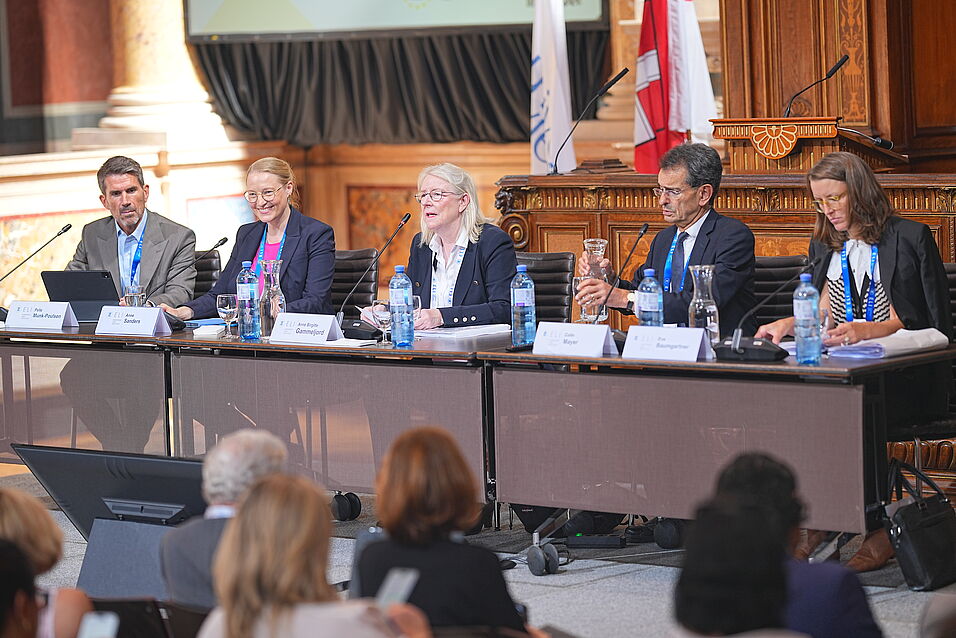The discussion focused on Enterprise Foundations in Europe and ELI’s work in the field. Drafted by Anne Sanders and Steen Thompson, with assistance from Mark Ørberg, ELI’s Model Law is designed to inspire debate and guide future legislation.
Enterprise foundations were described as civil law entities that hold assets to pursue a long-term purpose and, crucially, own controlling shares in business companies. While only Denmark currently provides a specific legal framework, similar foundations play an important role in countries such as Austria, Germany, and Italy. The project underscored their value in demonstrating a model of capitalism that balances profitability with social purpose. Research indicates that such companies often perform as well as, or better than, others, showing greater longevity, stronger employee welfare, and higher sustainability ratings. Owned by foundations rather than individuals, they also contribute to greater equality and community engagement.
The ELI Model Law aims to facilitate the establishment and governance of enterprise foundations by offering legislators a flexible ‘menu of options’ adaptable to national systems. Its core elements address the creation and governance of foundations, the role of a competent authority, and tax neutrality, ensuring foundations serve genuine business purposes rather than functioning as tax vehicles, while at the same time protecting donors from undue taxation when transferring assets to them.
The panel also featured perspectives from industry and practice. Pelle Munk-Poulsen, General Counsel of the Novo Nordisk Foundation, described how the world’s largest enterprise foundation manages assets worth €145 billion while providing both business stability and annual philanthropic grants of €1.35 billion. He noted challenges in international recognition and stressed that a Model Law could clarify the legal nature of such entities globally. Professor Colin Mayer CBE, Emeritus Professor, University of Oxford, highlighted the potential of foundation ownership to achieve ‘profit without harm,’ aligning corporate purpose with social and environmental responsibility. Eva Baumgartner, an Austrian practitioner, discussed the limits of national law, which restricts foundations from directly engaging in business, and identified challenges in amending foundation statutes once founders are no longer involved.
To wrap up, Anne Sanders announced the establishment of an ELI Special Interest Group (SIG) to advance this work and engage with practitioners and policymakers across Europe. The initiative aims to promote dialogue and reform in enterprise foundation law, contributing to a more sustainable and purpose-driven European economy.
&nb

